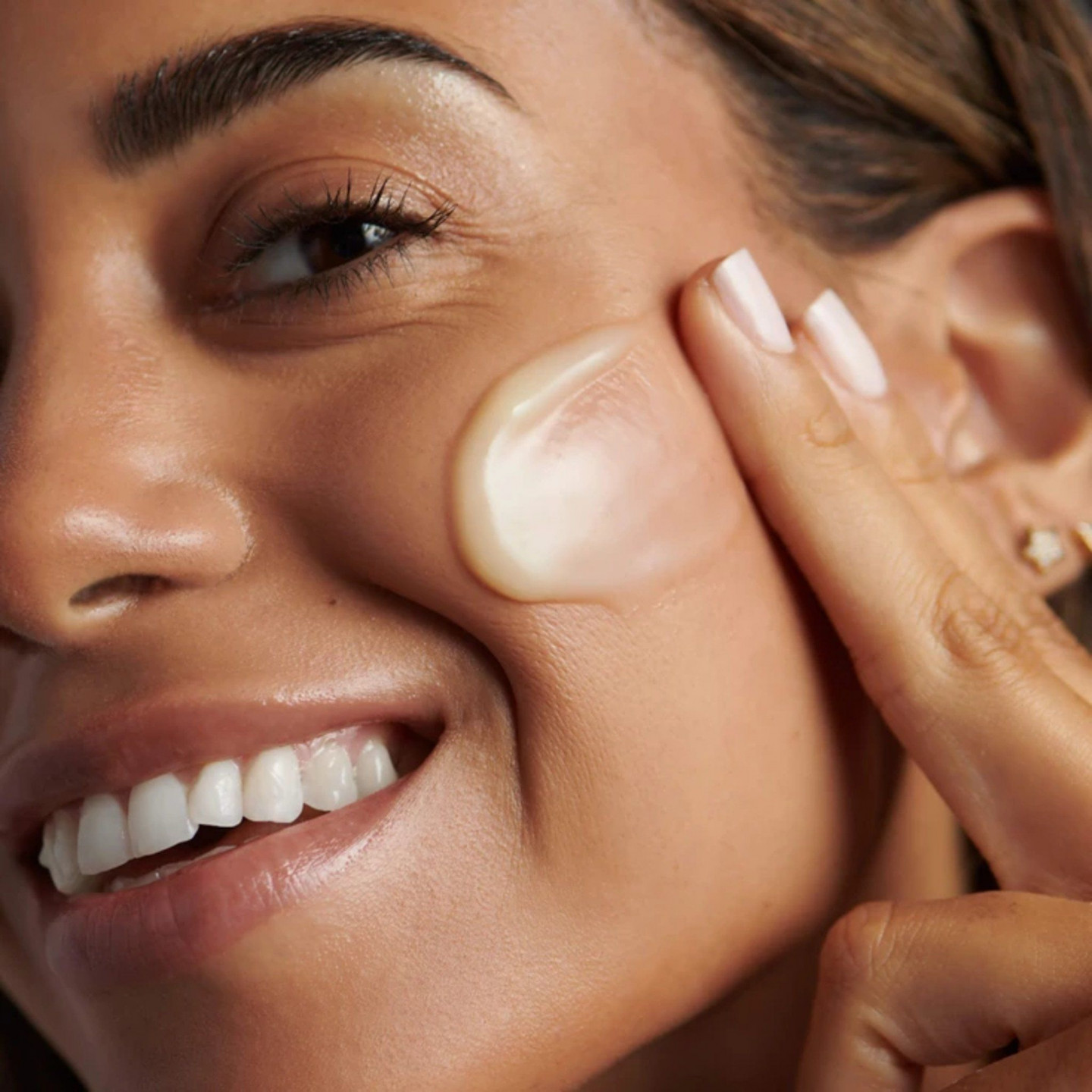Skin changes in menopause

Menopause, which officially begins one year after your last period, can bring with it some noticeable changes to your skin and hair. As hormone levels plummet, your skin can become dry, slack, and thin. You may notice more hair on your face and less on your scalp.
With the right care, you can lessen these effects. Here’s what dermatologists recommend.
Age spots and other signs of sun-damaged skin. If you’ve spent ample time in the sun without sun protection, you’ll likely see the effects now. Age spots and larger areas of darker skin can appear on your face, hands, neck, arms, or chest.
Skin cancer and pre-cancerous skin growths also become more common.
What you can do to protect your skin:
Apply sunscreen every day before going outdoors. To give your skin the protection it needs, use a broad-spectrum sunscreen with SPF 30 or higher. Apply it to all skin that clothing won’t cover.
This can help fade age spots, prevent new spots from forming, and reduce your risk of getting skin cancer.
Make an appointment to see a dermatologist for a skin cancer screening. Your risk of getting skin cancer increases with age. As your risk rises, skin cancer screenings become so important. The earlier you find skin cancer and pre-cancerous growths, the more treatable they are.
Start skin self-exams. During your dermatology appointment, ask your dermatologist how often you should examine your own skin. You’ll find everything you need to know to examine your skin at, Detect skin cancer
Ask your dermatologist to recommend treatment for age spots. Before you buy any treatment for age spots, see your dermatologist for a skin exam.
Skin cancer sometimes looks like an age spot or other dark spot on your skin. If you use your age-spot treatment on a skin cancer, you may fade the spot and delay treatment. Delaying treatment for skin cancer gives the cancer time to possibly grow and spread. This can make the cancer more difficult to treat.
After examining your skin, your dermatologist can recommend an age-spot treatment that’s suitable for your skin.
Bruise easily
As estrogen levels fall, skin becomes thinner. Thin skin bruises more easily.
What you can do
You may be able reduce thinning skin.
Here’s how:
Apply a broad-spectrum sunscreen with SPF 30 or higher every day. While this cannot thicken your skin, it can prevent further thinning. You want to apply sunscreen to your face, hands, neck, and any other area that clothing won’t cover. And you want to do this every day, even in winter.
Consult with a dermatologist about treatment options. A dermatologist will be honest about what may work for you. For some women, a retinoid cream can help. Laser treatment may be another option.
Dry skin
In menopause, skin loses some ability to hold water, so skin can get quite dry. This can be especially noticeable when the air is dry.
What you can do
The following can help combat dry skin:
Wash with a mild cleanser instead of soap. For mature skin, soap can be too drying. And you definitely want to skip the deodorant bars.
Apply moisturizer after bathing and throughout the day when your skin feels dry. A moisturizer with hyaluronic acid or glycerin can be especially helpful.
See your dermatologist if your skin still feels dry. Exfoliation or microdermabrasion may help, but you want to see your dermatologist before trying one of these. At menopause, skin becomes thinner and trying one of these at home may cause more harm than good.
Facial hair
As levels of female hormones fall, you can see unwanted hair under your chin and along your jawline or above your lip.
What you can do
Waxing may be an option. If your skin becomes too thin for waxing, your skin can tear and bleed. To remove unwanted hair, you’ll want to:
See your dermatologist. A board-certified dermatologist can tell you what you can use to remove unwanted hair. Options include laser hair removal and a prescription hair-reduction cream.
Have a board-certified dermatologist perform laser hair removal, if that’s an option. In skilled hands, this treatment may seem easy. Your risk of side effects increases dramatically when the person performing your laser treatment lacks medical training and in-depth knowledge of the skin.
Who should perform your cosmetic treatment?
Laser hair removal
Hair loss on your head
At menopause, many women notice thinning hair on their head. The first sign may be a widening part. Some women find that their hairline starts to recede.
What you can do
When it comes to hair loss, the earlier you start treating it the better your results. Because many things can cause hair loss, you’ll want to:
See a board-certified dermatologist at the first sign of a problem. Treatment for hair loss depends on the cause. If your hair loss is due to menopause, your dermatologist may recommend minoxidil, laser treatment, or both.
If you have already lost a considerable amount of hair, a hair transplant may be an option.

